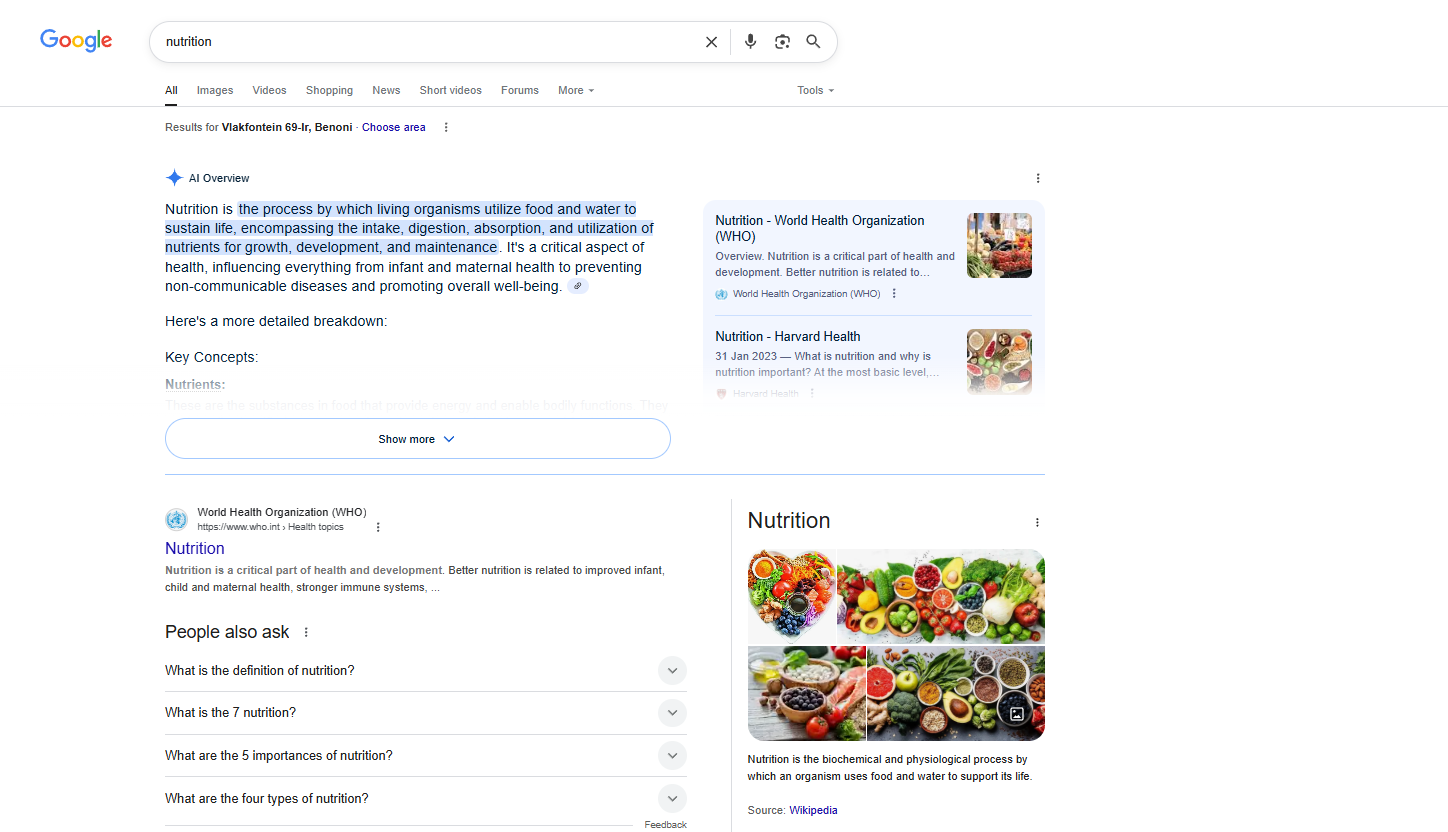Why SEO Remains Unchanged - Debunking The GEO and AIO Buzzwords
If you’re a business owner aiming to boost your website’s visibility, you may have encountered terms like “GEO” (Generative Engine Optimisation) and “AIO” (AI Optimisation). These are often pitched as new strategies for optimising content for AI-driven search engines like Gemini or ChatGPT. The reality?
These are not novel approaches, and they don’t signal a fundamental shift in search engine optimisation (SEO). I’m here to clarify why traditional SEO remains effective and why GEO and AIO are more hype than substance.
Understanding SEO Fundamentals
SEO is about improving your website’s visibility on search engine results pages (SERPs) to drive organic traffic. This involves optimising content, website structure, and technical elements to align with how search engines like Google rank websites.
The goal is straightforward: create high-quality, relevant content that meets user needs and follows search engine guidelines.
Despite claims that AI-driven search demands a new approach, SEO’s core principles remain unchanged.
Let’s explore why terms like GEO and AIO are misleading.
The Truth About GEO and AIO
Some marketers argue that generative AI search engines, powered by large language models (LLMs), require a specialised strategy because they generate answers rather than retrieve them. They compare this to optimising for Amazon versus Google, suggesting a need for distinct expertise. But this argument doesn’t hold up. Google has integrated LLMs into its algorithms for over a decade, starting with significant updates like Hummingbird in 2013.
The Hummingbird Update and Its Impact
In August 2013, Google launched the Hummingbird update, a major overhaul of its search algorithm. Unlike earlier updates focused on keywords or backlinks, Hummingbird prioritised understanding the intent behind a user’s search query. It enabled Google to process natural language searches, such as “What’s the best coffee shop near me?” rather than relying solely on exact-match keywords.
Hummingbird introduced semantic search, leveraging natural language processing, a key component of LLMs. Features like autocomplete, which predicts your query as you type, and the Knowledge Graph, which delivers quick answers to factual questions, stemmed from this shift. Google’s use of LLMs has been evolving for years, making the idea of a “new” AI-driven search less revolutionary than it seems.
For reference, here is what a Google search looked like prior to the Hummingbird update:

Here is what it looks like in 2025 when performing the same search:

The Age-Old Tactic of Buzzwords in Marketing
In digital marketing, terms like “GEO” (Generative Engine Optimisation) and “AIO” (AI Optimisation) may sound like groundbreaking innovations. Yet, the strategy of creating buzzwords to sell services is hardly new. It dates back to the advertising era of Mad Men, where catchy phrases and promises of the latest trend drove sales.
For business owners who do not necessarily have the deep SEO knowledge that comes with years of specialisation in the field, these new terms can seem like essential tools to outpace competitors. In reality, this often leads to spending on repackaged services that offer little unique value.
Buzzwords gain traction by making complex concepts appear fresh and urgent. Marketers understand that business owners want to stay ahead, and terms like GEO or AIO exploit this desire by suggesting a revolutionary approach to search.
The truth is these terms often repackage familiar SEO principles, such as creating high-quality content, optimising for user intent, and building authority. These have been effective for years. By wrapping these fundamentals in new jargon, some agencies capitalise on the fear of falling behind, selling services that sound innovative but deliver results no different from traditional SEO.
I prioritise clarity over hype. Instead of chasing buzzwords, I focus on proven strategies that drive real results. Transparent, effective SEO doesn’t need a trendy label to boost your website’s rankings and attract customers.
Why GEO and AIO Miss the Mark
The premise of GEO and AIO is that generative AI search requires a different optimisation strategy. However, whether a search engine retrieves or generates results, the principles of SEO remain consistent; produce high-quality, user-focused content that addresses user intent.
Google’s algorithms, even with AI enhancements, prioritise relevance, authority, and user experience. The change lies in how results are displayed, not how they’re ranked.
For instance, Google now features AI-generated summaries, like featured snippets or “AI Overviews,” at the top of some SERPs. These pull information from top-ranking pages, meaning traditional SEO practices, such as targeting relevant keywords, earning authoritative backlinks, and ensuring a user-friendly website, are still essential.
The Danger of Chasing Buzzwords
When businesses buy into GEO or AIO as unique services, they risk wasting resources on strategies that offer no distinct value. Some agencies may exploit confusion around AI-driven search to push ineffective tactics. I value transparency. SEO isn’t about jumping on the latest trend; it’s about applying proven strategies that work across all search environments.
Here’s what you should prioritise to enhance your website’s visibility in Gemini and ChatGPT.
- High-quality content: create clear, informative content that answers your audience’s questions and addresses their intent.
- Technical SEO: ensuring your website isn’t slow to load, mobile-friendly, and easy to navigate remains important.
- Authority building: earning backlinks from reputable websites to establish your site as a trusted source.
- Keyword research: identifying and naturally incorporating terms your audience searches for to boost relevance.
Building Trust in SEO
Some question Google’s statements about Gemini AI-overview inclusion and citations relying on the same SEO factors as always, citing controversies like ranking factors document leaks. While skepticism is warranted, the evidence is clear: Google’s use of LLMs, starting with updates like Hummingbird, is well-documented. The principles of SEO, creating valuable content, optimising for intent, and building trust, have remained consistent for over a decade.
I’ve been in the SEO field for 15 years and I still focus on honesty and results. I don’t rely on trendy terms like GEO or AIO. Instead, I deliver measurable outcomes through proven SEO strategies.
Focus on What Works
Generative AI in search has sparked excitement, but it hasn’t altered SEO’s fundamentals. The Hummingbird update in 2013 set the stage for today’s AI-driven search, and creating high-quality, user-focused content remains as effective as ever. Terms like GEO and AIO may sound innovative, but they are just repackaging traditional SEO principles.
If you want to improve your website’s visibility, avoid buzzwords and quick fixes, partner with an agency that prioritises transparency and results. At ClickOn Marketing, we specialise in SEO that drives sustainable growth.
Ready to elevate your online presence? Contact ClickOn Marketing today to learn how we can help your website rank higher and attract more customers.



